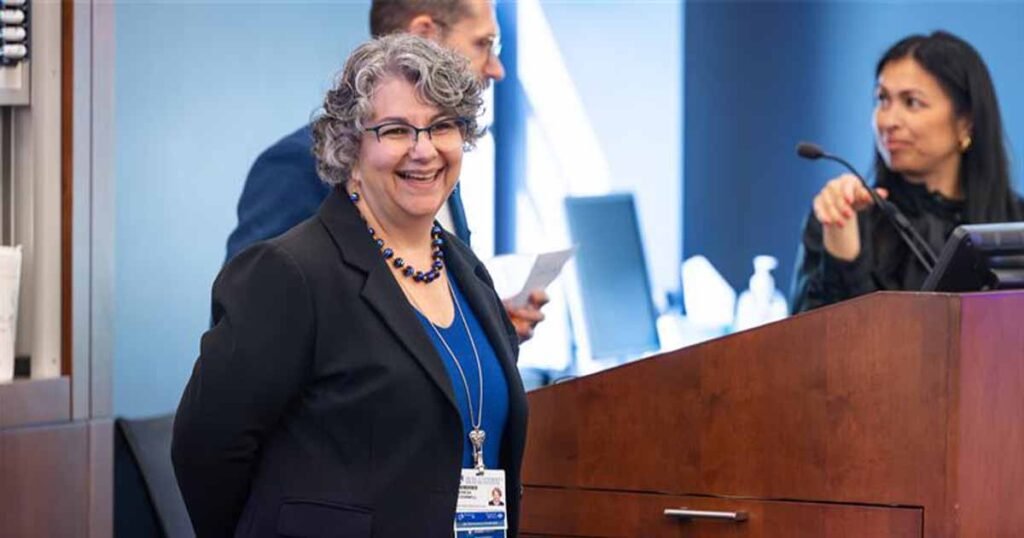Theresa McDonnell, DNP, RN, is a healthcare executive with a unique perspective. Serving as the chief nurse executive at Duke University Health System, she also continues to work as a practicing oncology nurse. This dual role allows her to bring a holistic view to decision-making, combining boardroom strategy with bedside reality.
In a time where clinician burnout is a prevalent issue, McDonnell is taking proactive steps to drive change. She is spearheading innovative workforce and safety initiatives at Duke, including the implementation of virtual reality-based workplace safety training and artificial intelligence-powered staffing tools. These initiatives have already shown positive results, with a decrease in nurse overtime and an improvement in retention rates.
One of McDonnell’s key focuses is bridging the gap between academia and clinical practice. By fostering collaboration between Duke’s medical school and health system, she aims to positively impact the training and retention of the next generation of nurses.
In a recent interview, McDonnell shared insights into Duke’s technology-enabled strategy. She highlighted the use of immersive virtual reality for safety education, emphasizing the importance of nurse-led innovation in creating effective training programs. This approach has resulted in a reduction in workplace violence incidents and increased confidence among nurses.
Another innovation led by McDonnell is the implementation of AI-powered staffing tools. These tools leverage real-time data to forecast patient demand and recommend staffing adjustments, ultimately reducing nurse overtime and improving retention. By involving nurses in the design process, Duke has seen significant improvements in workforce planning and continuity of care.
McDonnell’s vision is rooted in compassion, which she believes is a critical factor in healthcare leadership. She emphasizes the importance of understanding and supporting the experiences of healthcare staff to create smarter systems and better outcomes. By embedding compassion into operations, Duke is working to restore trust and empower clinicians to deliver high-quality care.
In the realm of health IT, McDonnell advocates for a compassionate approach to innovation. She stresses the importance of designing technology that adapts to the needs of users, rather than forcing users to adapt to technology. By involving staff in the design process and prioritizing empathy, Duke aims to create solutions that enhance patient care and support clinician well-being.
Overall, McDonnell’s leadership at Duke University Health System exemplifies the power of innovation, collaboration, and compassion in healthcare. By embracing new technologies, fostering interdisciplinary collaboration, and prioritizing the well-being of healthcare staff, Duke is paving the way for a more sustainable and patient-centered healthcare system.


